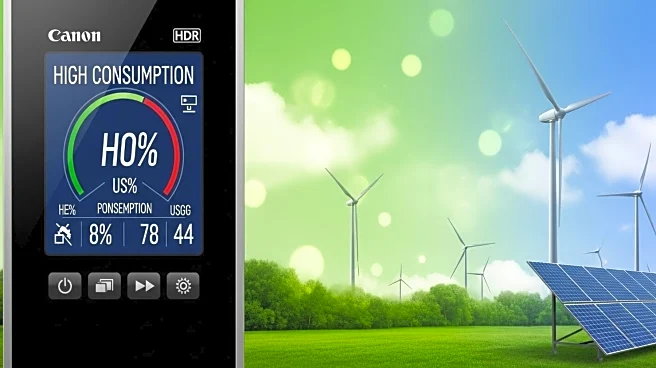What's Happening?
Artificial intelligence (AI) chatbots, such as ChatGPT, have seen a surge in popularity, with nearly 200 million users generating over a billion prompts daily. This widespread use has led to significant energy consumption, with data centers responsible for 4.4% of electricity use in the United States as of 2023. Globally, these centers account for about 1.5% of energy consumption, a figure expected to double by 2030. The energy-intensive nature of AI chatbots is primarily due to the processes of training and inference. Training involves large language models (LLMs) processing enormous datasets to learn and make predictions, requiring substantial computational resources. Inference, the process of generating responses from learned data, also demands significant energy due to the high volume of user requests. Researchers are working to quantify these energy demands and explore ways to reduce them, but transparency from major tech companies remains limited.
Why It's Important?
The growing energy consumption of AI chatbots poses significant environmental concerns, as the demand for AI technologies continues to rise. This trend could lead to increased carbon emissions and strain on energy resources, impacting global efforts to combat climate change. The lack of transparency from major tech companies regarding the specific energy demands of their AI platforms complicates efforts to address these issues. Policymakers and users are encouraged to push for greater disclosure and accountability, which could lead to more sustainable practices in the AI industry. The situation highlights the need for balancing technological advancement with environmental responsibility, as the world grapples with the implications of AI's rapid growth.
What's Next?
As the demand for AI chatbots continues to grow, researchers and policymakers are likely to focus on developing strategies to mitigate their environmental impact. This could involve advocating for more energy-efficient AI models, encouraging transparency from tech companies, and implementing policies that promote sustainable practices. Users may also play a role by making informed choices about their AI usage and supporting initiatives that prioritize environmental responsibility. The ongoing dialogue between stakeholders will be crucial in shaping the future of AI technology and its impact on the environment.
Beyond the Headlines
The energy consumption of AI chatbots raises ethical questions about the responsibility of tech companies to disclose their environmental impact. It also prompts a broader discussion about the role of technology in society and the need for sustainable innovation. As AI becomes increasingly integrated into daily life, balancing its benefits with its environmental costs will be a critical challenge for the industry and society at large.










